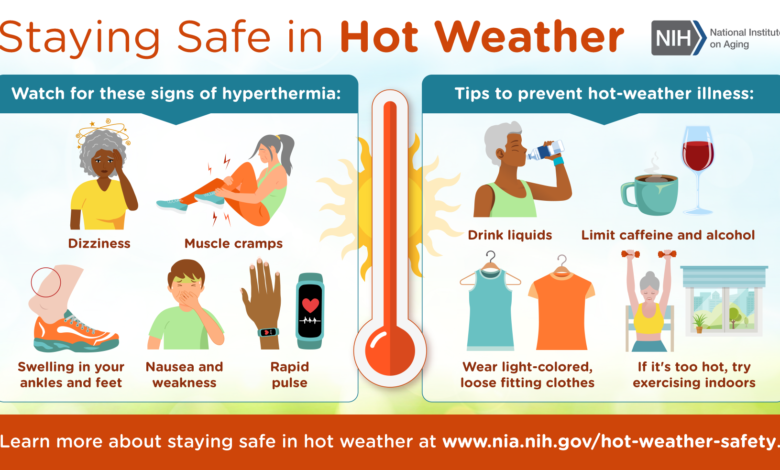
Climate change is manifesting in tangible ways, such as increased instances of flooding and heatwaves, accompanied by various health challenges. The severity of heatwaves is particularly pressing, necessitating attention to fundamental aspects of a healthy lifestyle.
Despite their subtlety compared to more visibly destructive phenomena like storms or fires, heatwaves pose significant dangers that are often overlooked. Dr. George Ankomah, a medical doctor and Deputy Medical Director at Sakumono Community Multiplex Hospital, shared his insights on the matter during an episode of the Ahotor Adekyee Mu Nsem morning show on Ahotor 92.3 FM, hosted by Citizen Kofi Owusu in Accra.
Dr. Ankomah emphasized the potentially fatal consequences of heatwaves for vulnerable demographics such as the elderly, individuals with preexisting health conditions, and outdoor workers. He stressed the importance of implementing simple yet effective measures like awareness campaigns and warning systems to mitigate the impact of heatwaves and save countless lives.
Furthermore, Dr. Ankomah cautioned against the common misconception that consuming iced cold water is a suitable remedy during hot weather. Contrary to popular belief, drinking cold water can exacerbate the risk of heatstroke, the most severe heat-related illness. Heatstroke occurs when the body loses its ability to regulate temperature, leading to a rapid increase in body temperature, failure of the sweating mechanism, and ultimately, an inability to cool down.
Additionally, Dr. Ankomah warned against bathing with cold water during hot weather, as this practice can trigger adverse reactions in the body. Instead, he recommended showering with lukewarm water, particularly from the lower part of the body to the head, to avoid potential health complications associated with cold water exposure. Above all its very important to put on sun glasses to avoid direct effects from the direct sun which can caused a huge damage to the eyes.
In summary, Dr. Ankomah’s insights underscore the critical importance of understanding and addressing the health risks associated with heatwaves, urging individuals to adopt preventive measures and prioritize their well-being during periods of extreme heat



